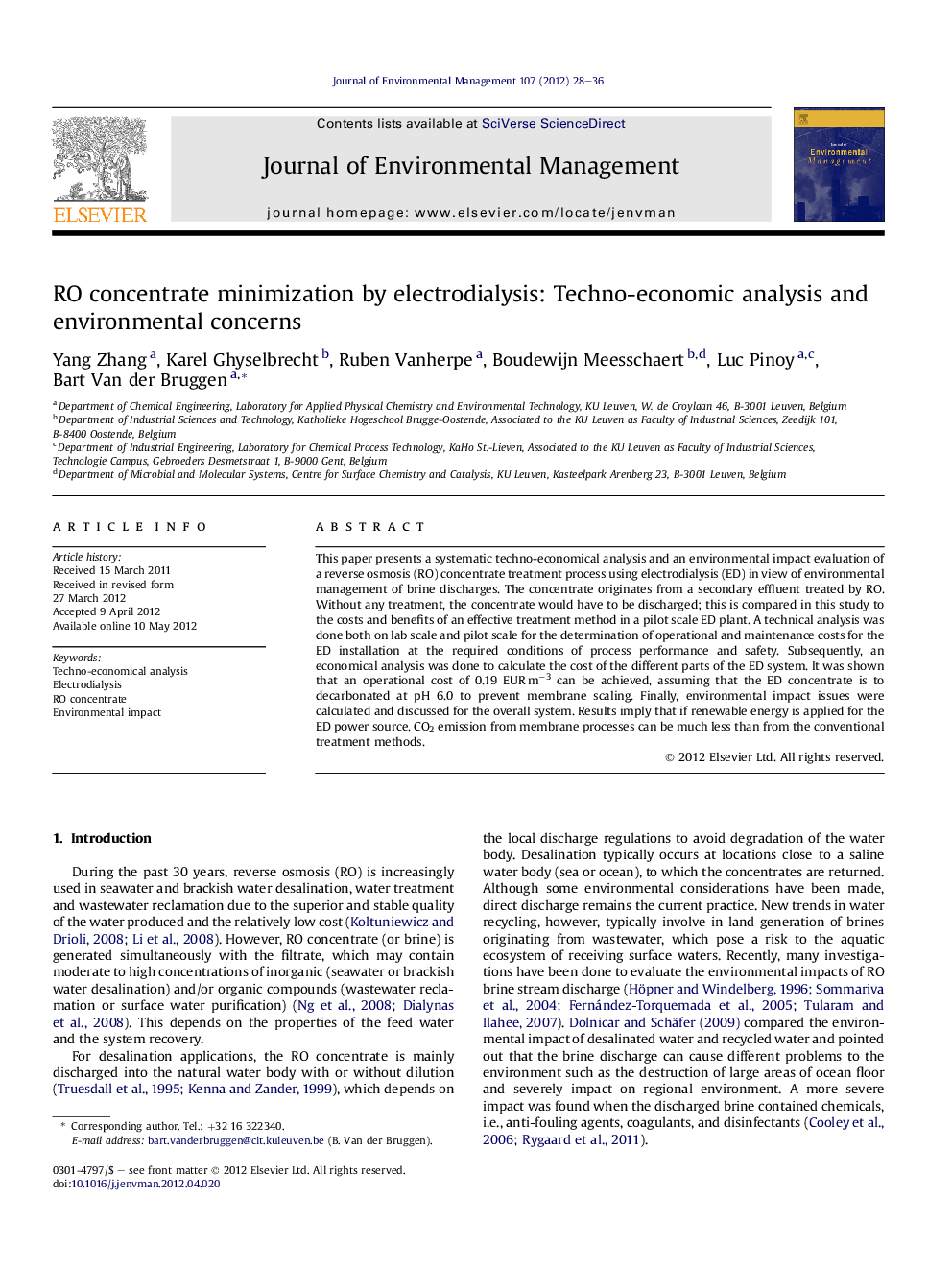| Article ID | Journal | Published Year | Pages | File Type |
|---|---|---|---|---|
| 1056660 | Journal of Environmental Management | 2012 | 9 Pages |
This paper presents a systematic techno-economical analysis and an environmental impact evaluation of a reverse osmosis (RO) concentrate treatment process using electrodialysis (ED) in view of environmental management of brine discharges. The concentrate originates from a secondary effluent treated by RO. Without any treatment, the concentrate would have to be discharged; this is compared in this study to the costs and benefits of an effective treatment method in a pilot scale ED plant. A technical analysis was done both on lab scale and pilot scale for the determination of operational and maintenance costs for the ED installation at the required conditions of process performance and safety. Subsequently, an economical analysis was done to calculate the cost of the different parts of the ED system. It was shown that an operational cost of 0.19 EUR m−3 can be achieved, assuming that the ED concentrate is to decarbonated at pH 6.0 to prevent membrane scaling. Finally, environmental impact issues were calculated and discussed for the overall system. Results imply that if renewable energy is applied for the ED power source, CO2 emission from membrane processes can be much less than from the conventional treatment methods.
► Lab scale ED can be used to demonstrate pilot ED. ► A linear correlation with applied current/flow rate predicts salt removal. ► Environmental impact was calculated (CO2/H2 emission, salt and organics discharge.
